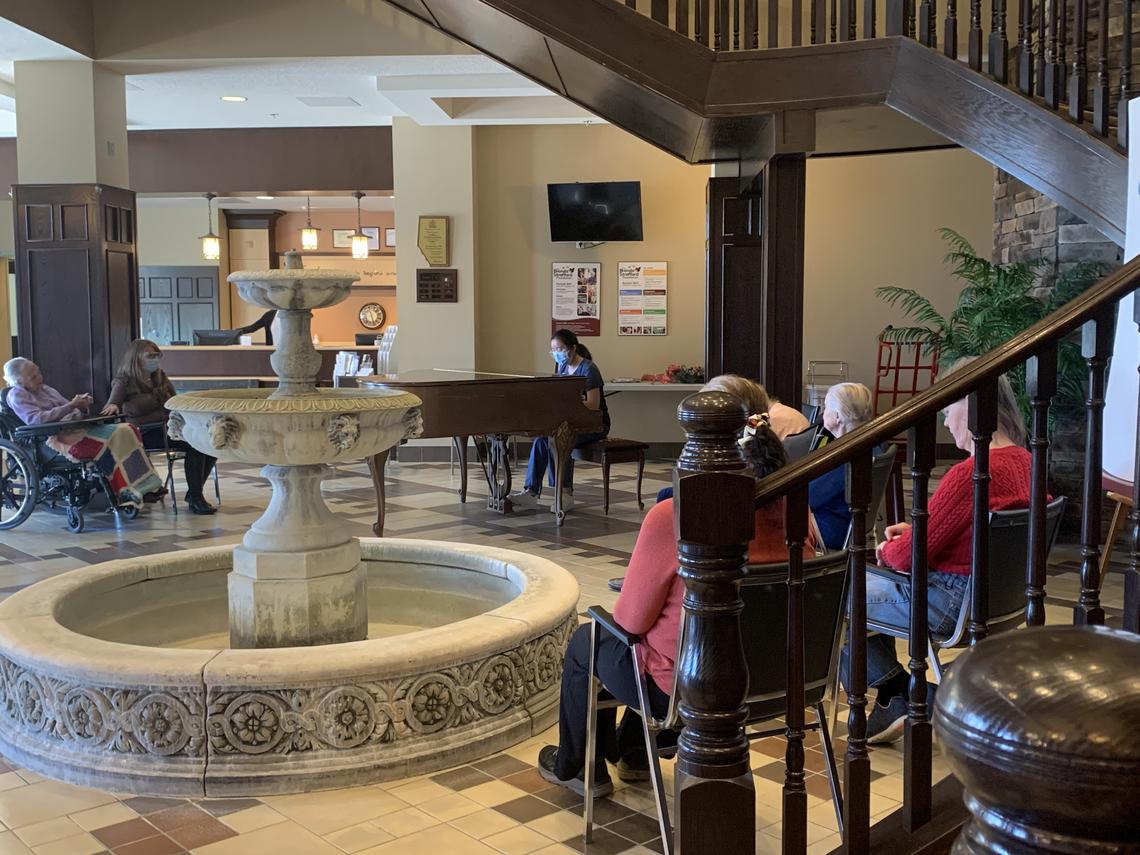June 7, 2022
Nursing faculty leads innovative simulation project with Brenda Strafford Foundation
There is no doubt that nursing care is one field in which you never stop learning — but what happens when you have completed your formal education? For nurses and other health professionals who work in increasingly complex care environments, health-care simulation offers proven benefit for the acquisition of new skills, improving leadership, communication and teamwork.
The ElderSIM simulation program is inspired to be part of the solution to the ongoing demand for continuing health-care education and training and is being co-designed by the Faculty of Nursing and the Brenda Strafford Foundation (BSF).

Nursing student Cynthia Wang organized piano concerts for Tudor Manor residents to raise spirits and improve overall well-being during the pandemic.
A team from the faculty, led by Dean Sandra Davidson, is working with the BSF to design a simulation program based on the faculty’s fully functioning, world-class nursing Clinical Simulation Learning Centre and in-house expertise in simulation learning design and facilitation. Just as simulation education gives nursing students the opportunity to practise their skills, it can also provide practicing health-care providers the opportunity to develop or maintain competency in clinical procedures, communication strategies, effective teamwork and the operation of equipment in a safe and supportive learning environment.
“I’m excited that staff will have the opportunity to practise all types of skills in a non-threatening, controlled environment," says Carlee Brown, administrator for Tudor Manor.
Staff can practise technical skills and communication skills and are in a safe learning environment where they can call time-out, enter a safe space, and talk through what is happening with the educator. In this setting, they aren’t threatened and can go back and replay situations to pick out key moments and reactions and truly learn from them.
The faculty and the BSF have an ongoing collaborative relationship that provides supported learning for students and research opportunities. Following the opening of its Cambridge Manor seniors' wellness community in the University District, the foundation expressed interest in providing its staff members with continued education to ensure the best possible care is being delivered to residents.
While the root of the ElderSIM project is focused on educating health-care professionals, the simulation program also has the potential to provide the residents and their families with the opportunity to learn and participate alongside BSF staff and community.
“There is an opportunity to use simulation, for example, to help family caregivers learn to communicate more meaningfully with their loved ones who might have cognitive issues like dementia,” says Davidson.
The ElderSIM project launched in early February and is currently nearing the end of the needs assessment/environmental scan phase. The Faculty of Nursing is working with the BSF to assess the learning needs and priorities of staff, families and residents, and will be moving on to further development of the project in the coming months.







